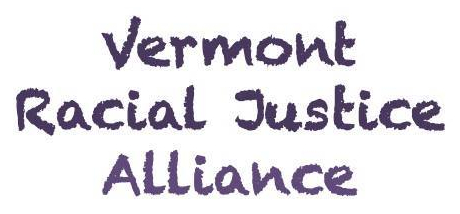Open Letter to State’s Attorneys and Sheriffs

March 30, 2020
Vermont Department of State’s Attorneys and Sheriffs
110 State State Street
Montpelier, VT
O5633 -6401
Re: Request for Emergency Response to COVID-19 Pandemic; Release of Low Risk Vulnerable Categories in the Interest of Public Health
Dear Vermont State’s Attorneys and Sheiffs,
We are calling on you to act immediately to protect the lives of the people impacted by prisons in Vermont. The spread of COVID-19 is a national emergency that threatens thousands of lives across our country. According to the latest estimates, the death toll from this virus could range anywhere from 200,000 to more than one million people in the United States alone.
While everyone is at risk, we have a moral obligation to ensure that our most vulnerable—the elderly, the sick, those without medical care, and those unable to protect themselves from the virus—get the help they need. We have a further obligation to our community to keep the people whose job it is to work in jails and prisons, and their communities, safe.
The below decarceral guidelines are designed to prevent three things: social spreading, jail “churn,” and the deaths of vulnerable people.
Social Spreading
In order to prevent the rapid growth of COVID-19 from overburdening our health-care system and claiming lives, both those in secure facilities and the people who work in them, it is the responsibility of decision makers at every level to prevent and contain the spread of the virus by taking action to promote the most effective strategy in abating the pandemic: social distancing in order to slow “community spread.”
The Particular Issue of Jail and Prison “Churn”
Jails and Prisons combine the worst aspects of a cruise ship and a large public gathering and, thus, can be the perfect breeding ground for the spread of COVID-19. People are constantly booked into and out of jail and prison facilities and each night guards, vendors, and other jail staff are going home while others are coming in- which results in a massive turnover. For example, more than half of the people in jail are only in there for two to three days.
Further, enclosed structures like jails can cause COVID-19 to spread like wildfire and introducing just one person with it can lead to it impacting not just everyone inside the jail or prison but anyone leaving the facility—whether a person who is released or staff returning back to their homes— who then interacts with their communities.
Preventive Measures Cannot Be Taken in Jails and Prisons
Experts recommend that to protect the people most vulnerable from death or serious illness from COVID-19 that they be appropriately separated through social distancing. Yetseparating sick people from well people to prevent the disease from spreading can be nearly impossible in prison due to logistical considerations.
WE ARE WRITING TO URGE YOU TO ENACT THE FOLLOWING DECARCERAL GUIDELINES:
- Release anyone within 18 months of their release date.
- Release anyone who is held pretrial and who does not pose an unreasonable safety risk to a specific person or persons.
- Hold all new state prison sentences if delaying the sentence would not pose an unreasonable risk of safety to a specific person or persons.
- Release of all people serving a misdemeanor sentence who are within six months of their release date.
- Release of all people held on probation and parole technical violation detainers or sentences.
- Discontinue making new custodial arrests for any crimes that do not pose an unreasonable safety risk to a specific person or persons.
- Make transparent a policy, vetted by public health officials, for handling COVID-19 within your office.
We know how seriously you take your duty to protect the lives of people living and working in our prisons and jails and the surrounding communities. The health, well-being and indeed the lives of these people are in your hands. We urge you to take immediate and decisive action now to save lives. We will support you in taking the bold, but necessary, action now to protect the health of people, including the most vulnerable, in our community.
Sincerely,
Mark Hughes
Coordinator,
Vermont Racial Justice Alliance
CC’d
Vermont State’s Attorneys
Dennis Wygmans, Addison County
Erica Marthage, Bennington County
Jessica Zaleski, Caladonia County
Sarah George, Chittenenden County
Vincent Illuzzi, Essex County
James Hughes, Franklin County
Douglas Disabito, Grand Isle County
Todd Shove, Lamoille County
William Porter, Orange County
Jennifer Barrett, Orleans County
Rosemary Kennedy, Rutland County
Rory Thibault, Washington County
Tracy Kelly Shriver, Windham County
Ward Goodenough, Winsor County
Vermont Sheriffs
Peter Newton, Addison County
Chad B. Schmidt, Bennington County
Dean Shatney, Caladonia County
Kevin McLaughlin, Chittenenden County
Vincent Illuzzi, Essex County
Roger Langevin, Franklin County
Ray Allen, Grand Isle County
Roger Marcoux Jr., Lamoille County
Bill Bohnyak, Orange County
Jennifer Harlow, Orleans County
Stephen P. Benard, Rutland County
W. Samuel Hill, Washington County
Keith Clark, Windham County
D. Michael Chamberlin, Winsor County
Jaye Johnson , Legal Counsel Office of Governor Phil
Scott Mike Smith, Secretary Agency of Human Services
Mark Levine, Commissioner Vermont Department of Health
Jim Baker, Commissioner Vermont Department of Corrections
Emily Tredeau, Supervising Attorney Prisoners’ Rights Office Office of the Defender General
